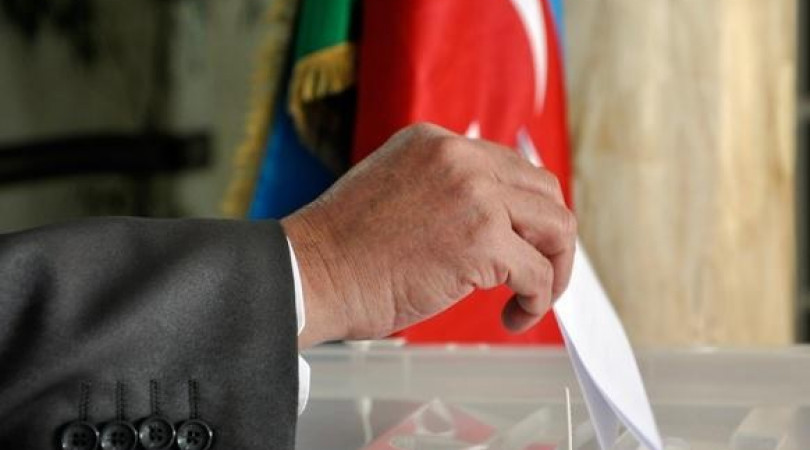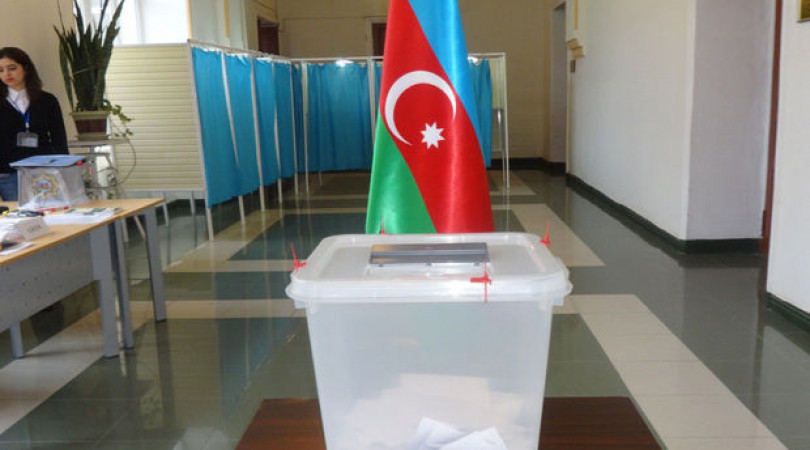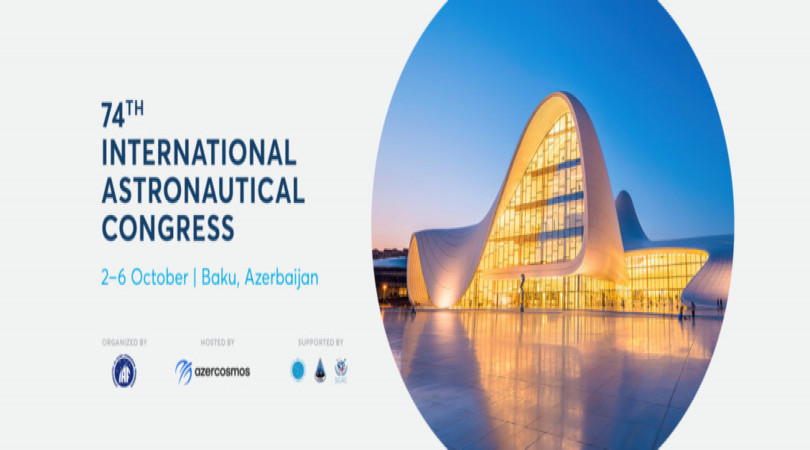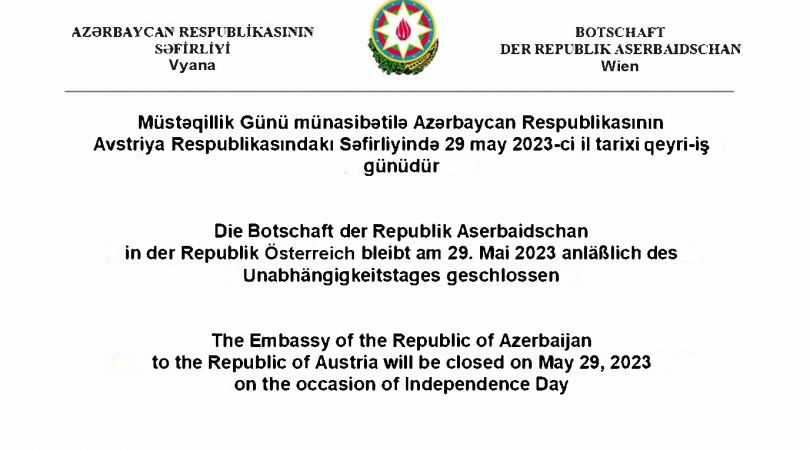Statement by the Delegation of the Republic of Azerbaijan on Compliance with International Humanitarian Law at the 973rd Meeting of the OSCE’s Forum for Security Cooperation, 28 April 2021
Mr. Chairperson,
Delegation of Azerbaijan welcomes that today’s Security Dialogue has been convened on the subject of compliance with international humanitarian law. The utmost importance of this topic can’t be overlooked in view of the invariable necessity to ensure adequate protection of non-combatants in situations of armed conflict. Compliance with international humanitarian law and its cornerstone - the Geneva Conventions of 1949 – also constitutes an essential element for attaining a broader objective of peace and security.
Azerbaijan recognizes all too well the value and significance of international humanitarian law in view of the recently ended three-decade long conflict and occupation of its territories by Armenia, which inflicted on Azerbaijani civilians immense sufferings. Armenia is responsible for persistent egregious violations of international humanitarian law and numerous war crimes committed by it, its agents and officials and those under its command and control in the territories of Azerbaijan since the war unleashed by Armenia in the early 1990s and until the end of the conflict last year. Such crimes include: civilian deaths and injuries; massive destruction and appropriation of civilian property; the mistreatment of detainees and prisoners of war; the taking of hostages; ethnic cleansing, forced displacement and changing the character of the occupied territories; the exploitation of natural resources; the destruction of cultural heritage; and damage to the natural environment.
As a result of the war in 1990s, 3890 Azerbaijanis went missing and their fate still remains unknown. Among these missing people 3171 are military servicemen and 719 are civilians, including 71 children, 267 women and 326 elderly. According to the witnesses of 1480 former Azerbaijani POWs, in a grave violation of international humanitarian law, including the Geneva Conventions of 1949, the Azerbaijani POWs were tortured, ill-treated and held in degrading conditions. Criminal investigations proved that 35 people were responsible for degrading treatment and torture against the Azerbaijani POWs and detainees.
The responsibility of Armenia is established both under general international law and with regard to the European Convention on Human Rights and involves legal consequences manifested, inter alia, in the obligation to provide full reparation for injury. These crimes also invoke the individual criminal liability of the perpetrators. Accountability must be an inevitable consequence of the offences committed. It is also an important preventive tool and an essential prerequisite on the path to genuine reconciliation.
On 27 September 2020, in order to repulse Armenia’s another act of aggression and occupation of Azerbaijan’s territories, the armed forces of Azerbaijan launched counter-offensive operation in the exercise of Azerbaijan’s inherent right of self-defense in accordance with the Article 51 of the UN Charter. Azerbaijan acted exclusively on its sovereign soil to protect its civilian population, liberate the occupied territories and allow hundreds of thousands of internally displaced persons to return to their homes and properties in dignity and safety. As a result of the counter-offensive operation, more than 300 cities, towns and villages in Azerbaijan were de-occupied and Armenia was enforced to peace.
It must be stressed that in the course of the last year’s 44 days war, Azerbaijani side took all necessary measures to ensure that its armed forces discharge their duties in full compliance with international humanitarian law, including the 1949 Geneva Conventions and their Additional Protocols. It was declared from the early days of counter-offensive that the armed forces of Azerbaijan will target only military objects and that civilians residing in the formerly occupied territories as well as civilian infrastructure therein will not be a target under no circumstances. Azerbaijan, unlike Armenia, strictly adhered to an essential principle of distinction between civilians and combatants, military targets and civilian objects, and honored its obligations under international humanitarian law. During this time Azerbaijan has also actively cooperated with ICRC in order to facilitate the implementation of various humanitarian measures, including under declared humanitarian ceasefires, which were breached by Armenia soon after coming into force. Azerbaijan has also undertaken unilateral humanitarian steps, such as transfer to Armenia of remains of fallen Armenian servicemen via a pre-agreed corridor with the mediation of ICRC.
Against this background, similar to its atrocious methods of warfare employed in the early 1990s, Armenia, with participation of mercenaries and foreign terrorist fighters, mobilized all its resources to target civilians and cause indiscriminate and disproportionate harm to cities, towns and villages in Azerbaijan. Deliberate, systematic and indiscriminate attacks of the Armenian armed forces against densely inhabited civilian areas in Azerbaijan located outside the format combat zone resulted in high number of losses among civilians and widespread destruction of civilian infrastructure. The armed forces of Armenia have repeatedly used the prohibited cluster munitions and white phosphorus projectiles, various rockets and missiles, including “Smerch” cluster munition rocket, "Smerch" MLRS, Scud-B ballistic missiles as well as Iskander-M missiles in their attacks against populated civilian areas.
Ganja, the second largest city of Azerbaijan, was hit three times. Two of these strikes, on 11 and 17 October, were launched with the use of Scud ballistic missiles, after declaration of humanitarian ceasefire. The consequences of these attacks have been devastating, causing the death of 25 civilians, including women, children and infants, more than 84 civilians have been wounded, a great number of residential buildings and other civilian facilities have been destroyed or damaged. Nighttime attacks on Ganja with ballistic missiles of such a high devastating capacity and precision leave no doubt that it was a pre-planned deliberate strike conducted with the aim of inflicting maximum level of casualties among civilians.
On 27-28 October 2020, Armenia attacked Barda district and then Barda city with 300 mm “Smerch” cluster munition rocket and "Smerch" MLRS. This attack, being the deadliest single attack on civilian areas of Azerbaijan in the course of the last year’s war, claimed the lives of 26 civilians, including children, while 82 civilians were seriously wounded. United Nations High Commissioner for Human Rights Michelle Bachelet has characterized the consequences of the attack on Barda on 28 October as “the biggest single loss of life”, noting also that “the rockets, allegedly fired by Armenian forces from Nagorno-Karabakh, reportedly carried cluster munitions”.
Overall, as a result of direct and indiscriminate attacks carried out by the armed forces of Armenia between 27 September and 10 November 2020, 101 Azerbaijani civilians, including 12 children, were killed, 423 civilians were wounded, almost 84,000 people were forced to leave their homes and over 4,300 private houses and apartment buildings and 548 other civilian objects were either destroyed or damaged. Even hospitals, medical facilities, ambulances, schools, kindergartens, religious sites, cultural monuments and cemeteries were not spared.
With aforementioned heinous attacks Armenia ignored a vital principle of distinction between military and civilians which sits at the core of jus in bello and generally, international humanitarian law. Deliberate, systematic and indiscriminate targeting of civilians and civilian objects by the armed forces of Armenia constituted a clear and gross violation of international humanitarian law, including the Geneva Conventions of 1949 and their Additional Protocols, and qualified as a war crime.
Furthermore, information on the use of Iskander-M missiles by Armenian armed forces against Azerbaijan surfaced after the end of the last year’s war. On 15 March 2021, during mine clearance operations in the liberated territories of Azerbaijan, Azerbaijan National Agency for Mine Action (ANAMA) found wreckages of two exploded missiles in the city of Shusha, which on the basis of inspection of the unique identification number on the remains and as a result of additional investigation were identified to belong to non-export Iskander-M missiles. Prior to that, the fact of launching Iskander missiles against Azerbaijan has been publicly admitted by senior officials of Armenia, including its Prime Minister N.Pashinyan.
Given the solid track record of Armenia’s attacks on civilian areas in Azerbaijan and persistent threats to use force against the Azerbaijani civilian infrastructure, we are concerned that the sense of defeat in the 44-day war in Armenia may prompt this country to use again ballistic missiles against Azerbaijan in order to destabilize the situation and undermine the prospects for peace in the region. Thus, we call upon the international community, including the OSCE, to condemn in strongest terms Armenia’s use of ballistic missiles against civilian objects as well as irresponsible and provocative policy and aggressive actions of this country that threaten regional peace and security; to express serious concerns on the deplorable fact of illicit transfer or smuggling of this type of deadly weapon and to exert political pressure on Armenia to reveal all the details of the use of Iskander-M missiles against Azerbaijan.
Mr. Chairperson,
Besides bombardment of civilian areas in Azerbaijan in the course of the last year’s war, Armenia committed further egregious violations of international humanitarian law, such as employment of child soldiers and use of kindergartens and school buildings for military purposes. There have also been multiple instances of extrajudicial executions and mistreatment of Azerbaijani POWs, as well as of desecration and mutilation of dead bodies by Armenian military servicemen. There are numerous evidences testifying to this, including video materials widely disseminated in social media showing the mistreatment of the Azerbaijani POWs by the Armenian armed forces.
All Azerbaijani POWs and civilians previously detained in Armenia and later returned to Azerbaijan underwent forensic medical examination and were questioned about the conditions of their detention. Expert opinions, personal statements, and other materials confirmed that the vast majority of detainees were subjected to physical torture and inhumane treatment. Unlike Azerbaijan, which has launched criminal investigations against its military servicemen who were allegedly linked to cases of abuse, the Government of Armenia despite repeated requests has refused to investigate cases of torture and inhumane treatment by its servicemen.
The 10 November trilateral statement signed by the leaders of Armenia, Azerbaijan and Russia put an end to the armed conflict and set agreed parameters for establishing durable peace in the region. Humanitarian measures are being implemented in accordance with the Article 8 of the statement, which envisages the exchange of prisoners of war and other detainees as well as bodies of the deceased servicemen.
Following the trilateral statement, in accordance with its obligations, Azerbaijan facilitated the collection and retrieval to the Armenian side of its deceased servicemen. As the result of search operations carried out in the former combat zone around 1500 corpses of Armenian servicemen were found and handed over to the Armenian side. We encourage Armenia, in the same vein, to disclose information on the whereabouts of remains of deceased Azerbaijani servicemen. According to the latest information, 24 Azerbaijani servicemen are still missing after the last year’s war.
In further fulfillment of the provisions of the trilateral statement, Azerbaijan has returned all Armenian POWs to Armenia. Contrary to groundless accusations of Armenia, Azerbaijan currently holds no detainees classified as POWs under international humanitarian law.
While detained, Armenian POWs and civilians were provided with regular visits by representatives of the ICRC, telephone and video calls with family members were facilitated. In addition, representatives of the Ombudsman's Office of the Republic of Azerbaijan regularly reviewed the conditions of Armenian POWs by visiting their places of detention.
We would like to remind that the sabotage group of 62 Armenian servicemen was transferred into the territory of Azerbaijan in late November 2020 after the signing of the trilateral statement, hence after the end of hostilities. The group was deployed in the Lachin district of Azerbaijan in late November, before its return to the control of Azerbaijan on 1 December 2020 under the trilateral statement. It penetrated deep into the territory of Azerbaijan and committed series of terrorist attacks against Azerbaijani military servicemen and civilians in the liberated areas of the Khojavand district, causing the death of 5 servicemen and 1 civilian. The group was detained as a result of joint anti-terror operation of State Security Service and Ministry of Defense of Azerbaijan.
Those sent by Armenia to the territory of Azerbaijan with the aim of engaging in sabotage and terrorist activities in the period after the signing of the trilateral statement are not and cannot be considered POWs in accordance with international humanitarian law and are liable under the criminal law of the Republic of Azerbaijan. These detainees are being treated with full respect to their dignity and human rights in accordance with international human rights law and Azerbaijani law. We call on Armenia to abandon its futile approach of distorting facts and misrepresenting information on the circumstances and reasons for detention by Azerbaijan of members of aforementioned sabotage group, claiming for them non-applicable status of POWs and falsely accusing Azerbaijan of not honoring its obligations.
It must be mentioned that Azerbaijan has created necessary conditions for humanitarian activities of Russian peacekeeping forces and relevant Russian government agencies in the zone of operation of peacekeepers. For instance, transportation routes were defined and facilitated for carrying cargo and necessary equipment to the zone of operation of peacekeepers. At the same time, we would like to remind that humanitarian activities by international organizations and other entities and bodies should be carried out in conformity with the principles of neutrality, impartiality and consent of the affected country, while fully respecting the sovereignty, territorial integrity and national unity of affected State in accordance with the Charter of the United Nations, as reaffirmed in the Guiding Principles on humanitarian assistance adopted by the UN General Assembly through its resolution 46/182 on “Strengthening of the coordination of humanitarian emergency assistance of the United Nations” of 19 December 1991.
We also would like to draw attention to another sphere of gross violations by Armenia of international humanitarian law. During almost three decades of occupation of Azerbaijan’s territories as well as during its forced withdrawal from these territories last year, in blatant violation of international humanitarian law, Armenia deliberately planted mines on a massive scale in these territories with a view to inflicting damage, as well as creating additional obstacles for the return of civilians. Currently Armenia refuses to release the information concerning the location of minefields, which is yet another gross violation of Armenia’s obligations under customary international humanitarian law. As a result, since 10 November 2020, during demining activities in the liberated territories of Azerbaijan, there have been numerous casualties and injuries not only among the Azerbaijani military and civilians, but also among the Russian peacekeeping forces. According to the latest figures, 21 Azerbaijanis, among them 14 civilians, were killed, and 98, among them 17 civilians, were wounded by mines. Human costs inflicted by Armenia-planted mines cannot but constitute another crime. Thus, the release of information by Armenia on the location of minefields is an absolute necessity so as to avoid further loss of innocent lives, improve humanitarian situation in the liberated territories of Azerbaijan and to move forward towards a speedy post-conflict rehabilitation, thereby contributing to lasting peace in the region.
Azerbaijan continues to adhere to the full implementation of humanitarian measures as envisaged by provisions of international humanitarian law and the 10 November trilateral statement. We urge Armenia to demonstrate similar approach and fulfill its obligations, instead of consistently bringing up obsolete conflict narratives and misrepresenting the facts on the ground as we witnessed today. Implementation of humanitarian measures is an indispensable part of broader efforts aimed at building confidence and promoting reconciliation between former sides to the conflict, and bringing about durable peace and security in the South Caucasus region. The two trilateral statements signed on 10 November 2020 and 11 January 2021 provide a clear and irreversible guidance to this end and thus, must be realized in a comprehensive manner without reservations.
We also would like to reply to the statement delivered on behalf of the EU and aligned countries, regarding the issue of access to the territories of Azerbaijan where the contingent of the Russian peacekeeping forces is located, as well as regarding the EU’s call on the exchange of POWs and detainees. Azerbaijan has been providing to the ICRC an unimpeded access to its conflict affected territories since the early 1990s. As it has already been mentioned, after the last year’s 44-day war, new realities on the ground emerged, necessitating adjustment of the ICRC’s activities to these realities. We expect the ICRC to apply the same approach in all internationally recognized territories of Azerbaijan and bring its operations in the formerly occupied territories of Azerbaijan in compliance with the new reality and international framework as envisaged by the UN General Assembly resolution 46/182. The same approach must be applied to all other humanitarian organizations.
As to the issue of POWs and detainees, it is quite strange to hear such a call from the EU and aligned countries. When a significant part of the internationally recognized territories of Azerbaijan was occupied by Armenia for nearly three decades, when ethnic cleansing was carried out against Azerbaijani civilian population in these territories, when Azerbaijani POWs and detainees were held by Armenia, torture and inhumane treatment was inflicted upon them, when thousands of people went missing as a result of Armenia’s aggression against Azerbaijan, when two Azerbaijani civilians were illegally detained, tortured and inhumanely treated by Armenian authorities between 2014 and 2020, when Azerbaijani cultural and religious heritage in the formerly occupied territories of Azerbaijan was destroyed and damaged by Armenia, we somehow have not been witnessing such resolute calls by the EU concerning these wrongdoings. Thus, we are of the view that the current position and calls of the EU is a clear case of double standards, and Azerbaijan rejects such an approach.
If the EU is genuinely interested in contributing to sustainable peace in the region and to reconciliation between Armenia and Azerbaijan, it should take an unambiguous position based on the norms and principles of international law, expressing clear support for territorial integrity, sovereignty and inviolability of internationally recognized borders of Azerbaijan. In the same vein, it should render support to the realization of the trilateral statements signed by the leaders of Armenia, Azerbaijan and Russia, as well as support and promote normalization of relations between Azerbaijan and Armenia based on the principles of sovereignty and territorial integrity.
As it was mentioned by the distinguished representative of the ICRC in her presentation, international humanitarian law is designed to protect civilian population in times of war, and States have to ensure protection of their citizens from terrorist attacks. Azerbaijan fully shares this view and our stance on the issue of POWs is in full accordance with international law, including international humanitarian law and the Geneva Conventions of 1949, as well as national legislation. We once again emphasize that those sent by Armenia to the territory of Azerbaijan with the purpose of committing terrorist acts in the period after the signing of the trilateral statement cannot be considered POWs under international humanitarian law. They are liable under the criminal law of the Republic of Azerbaijan and are currently under investigation. These detainees are being treated with full respect to their dignity and human rights in accordance with international human rights law and Azerbaijani law.
I request that this statement be attached to the journal of the day.
Thank you, Mr. Chairperson.




















